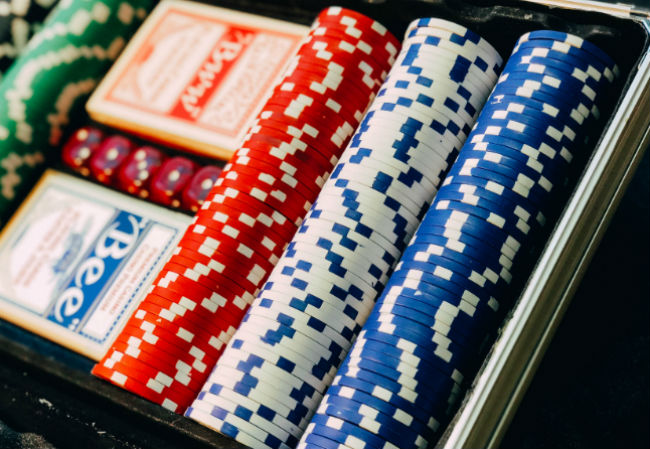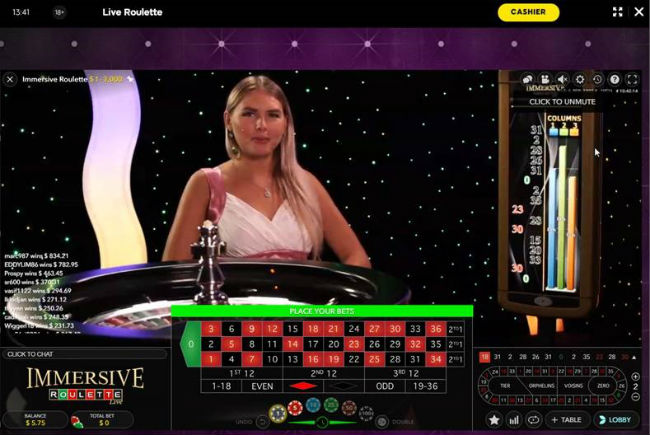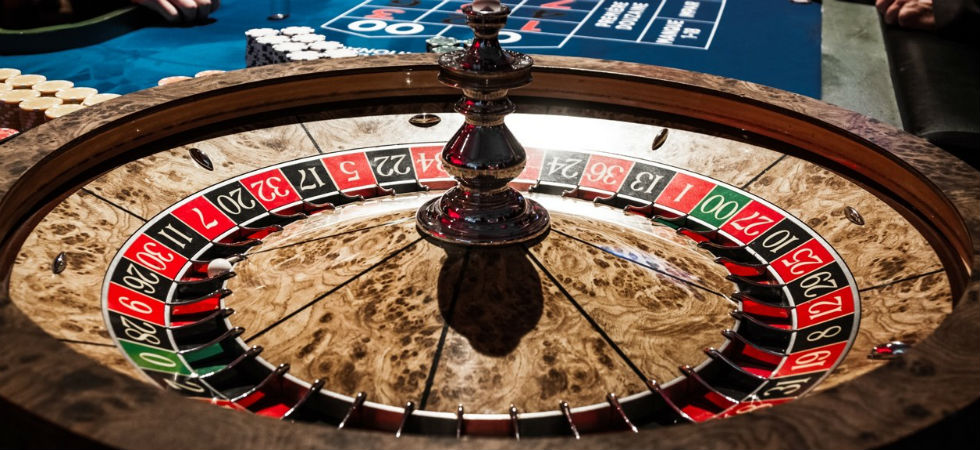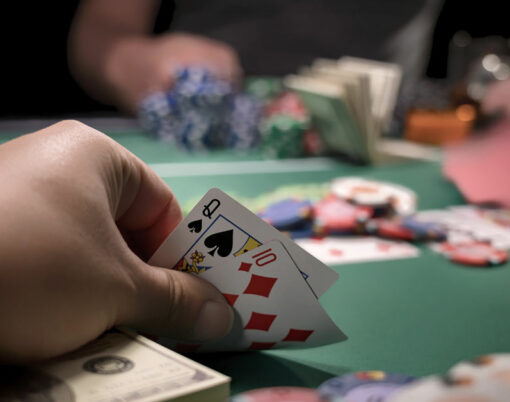There are few things more synonymous with luxury and glamour than a high-class casino. For decades, the casino has been the epitome of prestige and the setting for numerous movies and premier events, and there is one game in particular that is associated with the luxury of the casino: roulette. So, if you want to enjoy a taste of the high life at a glamorous casino, you need to know all about this most compelling of casino games.
The origins of roulette
The history of the game of roulette is linked with the history of the casino, but the game itself has somewhat obscure origins. Although the traditional form of roulette is reputed to have been developed accidentally by Blaise Pascal as he worked on a perpetual motion machine, there is plenty of evidence indicating that it has a much older lineage.
One story has it that a monk invented roulette by introducing the circle into an ancient Chinese game that was initially played on a numbered square. The numbers on the square added up to 666, just like the numbers on a roulette wheel.
It has also been suggested that Roman and Greek soldiers may have played games based on spinning circular objects. For the Romans, it was a chariot wheel, while the Greeks are said to have played a game that involved sticking an arrow into the ground, drawing images on a shield and spinning it, making bets on which image would end up next to the arrow.

Pascal
There isn’t definitive evidence that these proto-roulette pastimes were the game’s true ancestors, but we can say for certain that modern roulette was devised in France. Pascal’s wheel had all of the features we know today, including red and black colours and numbered slots. And the game was soon taken up by the cream of French society, as Prince Charles of Monaco founded gambling houses to stage roulette games.
Francois, Louis and the Double Zero
The next stage of the evolution of roulette came in 1842 when Francois and Louis Blanc took away the double zero slot, reducing the house edge and creating what became known as European roulette. By this time, gambling in France was illegal so Francois and Louis moved to Germany where the new version of roulette proved hugely popular. It was so popular in fact that Prince Charles II invited them to bring European roulette back to Monaco.
Global domination
It was European immigrants who introduced roulette to the United States, although its popularity was hit by the decision of US casinos to restore the double-zero slot, increasing the house edge. Fortunately, modern US gamblers can now play European roulette online.
French Roulette
The third important variant of the game is French roulette. Like the European version, it has a single zero slot, and it has an even lower house edge. It is also arranged differently to American roulette, with a divided field for outside bets and white rather than black numerals.
Roulette betting strategies
The popularity of roulette has inevitably led generations of casino goers to develop strategies in an attempt to beat the game and make a profit. The strategies come in three main categories.

Progressive Systems
These systems are staking plans that change the amount of money bet, based on the outcome of each spin, typically relying on increasing bet sizes to compensate for earlier losses.
The Martingale
The classic and best known system is called the Martingale and it is a popular method of play. The player only places small bets on simple chances, for example just red and black. If the bet is lost, then the stake is doubled for the next play. When a win is achieved all the previous losses will have been recouped, plus a small profit. By betting on simple chances, the odds of winning are about 50:50, so over a few spins the overall result is likely to be positive for the player. However, losing streaks do still occur whatever strategy is used, and the level of profit is unlikely to be substantial.
The Fibonacci Sequence
Another progressive system often used is called the Fibonacci Sequence. A Fibonacci series is where each number is the sum of the two numbers that precede it, e.g. 1, 1, 2, 3, 5, 8 et al.
As with the Martingale it is only used on simple bets. If a bet is lost, then the next bet placed will be the sum of the two previous bets. The bet progression is therefore slower, however, that has the advantage that protracted losing streaks are more survivable. A drawback of the strategy is that only the money from the previous two bets is returned upon a win.
Paroli Strategy
The Paroli strategy is centred on maximising profits rather than compensating for previous losses. Starting with a small bet the player, upon winning, bets the profit made twice in the hope of increasing the winnings. If a series of bets are won, the winnings are taken as profit and another series of play is started. If the player loses under this system only the initial bet is lost.

D’Alembert System
Named after a French philosopher and mathematician the D’Alembert System is another variation. With this system the progression is a slow riser. Each time a small bet loses it is increased by the same amount. When a win occurs, the next bet is decreased by the same amount.
Non-Progressive Systems
The non-progressive approaches always involve using the same level of stake for each bet but attempt to win by predicting which numbers will come up on future spins of the wheel, based on what has happened before. This is known as playing the numbers – single numbers that have not appeared for a while are assumed likely to appear at some point because they are overdue. The overdue numbers are known as retardaires. There is an opposite system where bets are placed on numbers that have been winners in previous play. That system relies on the two-thirds law. The law is based on the likelihood that in a consecutive run of 37 plays around 36% of the numbers will not win, 37% will appear once and 25% will be winners.
Neither of these systems are likely to make your fortune.
Physical Systems
These methods are all based on taking advantage of small defects in the physical elements of the game, from inefficiencies in the way that the wheel spins, to flaws in the way that the croupier throws the ball. Some professionals are said to be able to spot any such defects and are able to use them to their advantage.
En Prison and La Partage
You are also likely to come across the terms ‘En Prison’ and ‘La Partage (the divide). The ‘En Prison’ bet covers only even money wagers. If a zero results from a spin the dealer will place a marker by a bet to show that it is ‘En Prison.’ When the wheel spins again and the player wins, he or she will receive the original bet back. For example, if the player has bet £50 on ‘Even’ and the wheel lands on a zero, the following number being even, the stake is returned. However, the bet is lost if in those circumstances an odd number comes up. Where the ’La Partage’ rule is used and the spin results in a zero the dealer will divide any even money bets in half. One half is kept by the house and the other half is returned to the player. When the rule is in force it reduces the ‘house edge’ to 1.35% from 2.70%.
While these systems and strategies are all very different, they do have one thing in common: they will all lose in the long run. No staking strategy yet devised can overrule the house edge in roulette, and all top class casinos take rigorous steps to ensure that roulette players cannot take advantage of any physical flaws in their roulette games.

Roulette online
Once roulette became established in the luxury casinos of Las Vegas, the game went on to dominate the casino world, and as players in every continent learned the thrill of watching the roulette wheel spin, the seeds of the next stage of the game’s evolution were planted.
The first online casino appeared in the mid-1990s, and by the end of the century, online casino gaming was rapidly expanding. And naturally, roulette was at the forefront of this online revolution. For the first time, it was possible for players to get a taste of the opulence and extravagance of casino life while playing roulette in the comfort of their home.
Online roulette players have become increasingly discerning over the last few years and have gravitated towards the most reputable sites, not least because they provide the smoothest, most realistic roulette experience.
A good example of the modern online casino is 888casino. Its exciting selection of innovative online roulette games includes European Roulette, three games with different levels of stake – £0.50 – £300, £1 – £2,000 and £5 to £2,000, American Roulette with two games – £1 – £2,000 and £5 to £2,000, Deal or No Deal European Roulette – £1 – £300, two games of French Roulette – £1 – £2,000 and £5 – 2,000, and for the high rollers there is Super Stakes Roulette – £5 – £200,000. In addition, the site features Live Roulette – 888 Roulette, Immersive Roulette, Ruby Roulette, Auto Roulette and Speed Roulette. Live Roulette takes the player up close to the table. With the HD display and the camera views that switch automatically to follow the action it is the closest a player can get to a live casino experience while sitting in his or her own home. The most popular viewing platforms are catered for with the cutting edge technology used by 888 and there are three views from which a player can choose – the Immersive View, 3D and Classic View.
It is worth remembering that while modern online roulette players can access sophisticated variations and high-tech play, they are still essentially enjoying the captivating play that first drew Europe’s elite to the glittering casinos of France, and that has since caught the collective imagination of a global audience.






















